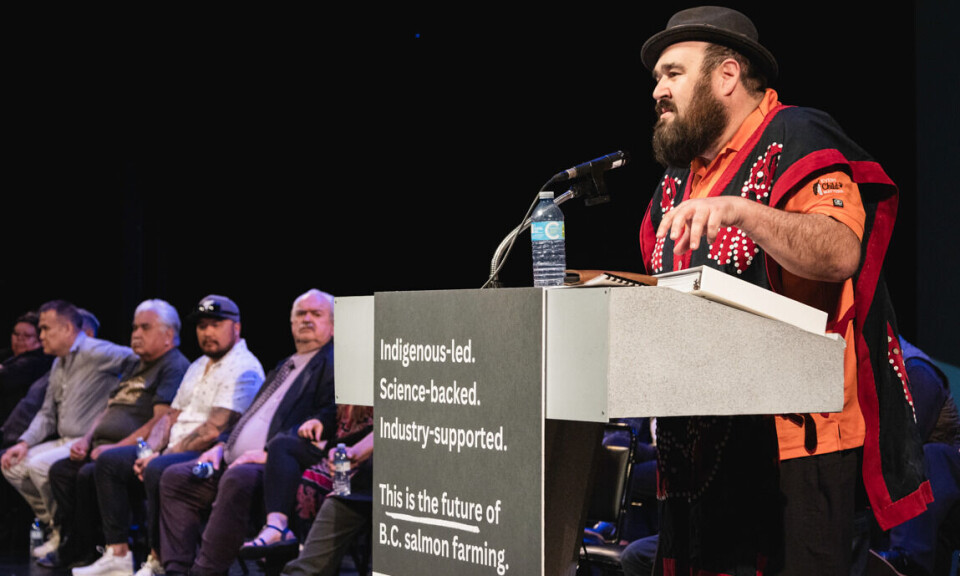
First Nations ask Trudeau for six-year salmon farm licences
Coalition emphasises importance of sector for remote communities
First Nations that rely on salmon farming in their traditional territories in British Columbia have asked Canadian Prime Minister Justin Trudeau to grant six-year renewals for farm licences due to expire next month.
The coalition of First Nations for Finfish Stewardship (FNFFS) has also invited Trudeau and BC premier David Eby to participate with First Nations in a review of the implementation of plans to “transition” the province’s salmon farming from the existing open net pen method.
Around 40% of BC’s salmon farm capacity has been shut down in the last few years, including 19 farms in the Discovery Islands that were closed when one of Trudeau’s ministers, Bernadette Jordan, refused to renew their licences just before Christmas in 2020.
Jordan then changed the rules to prevent the farms being restocked for the remainder of their tenure, leaving farmers with no option other than to cull healthy juvenile fish.
Two-year renewals
There was further concern two years ago when Jordan’s successor Joyce Murray - who had celebrated the Discovery Islands closures - delayed renewing licences for BC's 79 remaining farms until the last minute, and limited the renewals to two years, which the fish farming sector says in an impractically short period of time for production planning and deters investment.
The direct influence [salmon farming] has on the social health and economies of our communities cannot be emphasised enough
In its open letter to Trudeau, the FNFFS says First Nations have been working closely with Murray’s successor, the current fisheries minister Diane Lebouthillier, to ensure that the transition process “respects First Nations rights, title, self-determination, economic autonomy, and our strength of claim regarding salmon farming in our waters”.
It points out that all BC farmed salmon is raised in partnership with coastal First Nations and adds: “The sector supports over 500 jobs for local First Nations and injects over $50 million a year into our communities. The direct influence this has on the social health and economies of our communities cannot be emphasised enough.”
True reconciliation
The coalition says it wants to ensure the transition process is responsible, science-based, and built with Rightsholder First Nations at the table, and that First Nations have proposed their own transition plans.
“With those plans before you, you have an opportunity to show Canada what true reconciliation looks like while also supporting economic opportunities for coastal communities,” the coalition tells Trudeau.























































